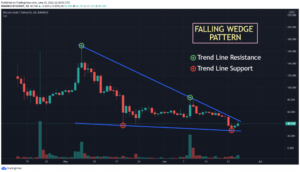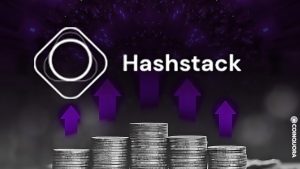
Collecting data is a big business. Firms have been collecting data about consumers for years, and the internet has made this process more widespread than ever.
Data collection has become so ubiquitous that the European Union set out a legal framework in order to protect consumers’ rights, but there are reports that these safeguards are failing. In the United States, California has passed the Consumer Privacy Act (CCPA) in order to provide similar assurances for its citizens, yet the burden for enforcing this law falls mostly on the consumer.
The internet makes it incredibly difficult for users to control who has access to their data, but a project called Swash is using crypto to change the way data can be owned and monetized by those who create it through a decentralized solution that has already seen 80,000 users taking part.
What Kind of Data Does a Company Collect and Use?
There are four kinds of data that businesses can collect about their customers including:
- Personal data that comprises identifying and non-identifying information
- Engagement metrics that describe how users interact with various platforms like apps, websites, or social media
- Behavioral data that can relay actions people have taken when using these platforms
- Attitudinal data that describes users’ wants, needs, and satisfaction concerning products and services
By sorting this data, corporations can discover a user’s age and location, what websites they frequent, how the user moves their mouse before making a purchase, and whether or not this person was happy with what they bought. Furthermore, much of this information is collected indirectly, and without users’ direct consent.
How Swash Created a System Where Users Can Profit
The important role data plays in the digital economy cannot be overestimated. In 2014, data became so valuable that the media began referring to this information provided by consumers as the next oil powering the world’s economy.
Since then, the analogy has shifted towards equating data to water as an indispensable commodity, and the Information Systems Audit and Control Association (ISACA), a professional association advocating for those working in IT, has argued that the stuff is as important as air.
Every figure of speech points to one thing: data is an essential element for businesses these days, and this makes it an incredibly valuable asset. One estimate figures that data helps Google earn around $182 per user, and all this data is produced for Google by around 2 billion users who do so for free.
Swash flips this model and helps users capture income from the sale of their data in an easy and unobtrusive way. By installing Swash’s plugin onto their browsers, users can earn passive income from the data created by their browsing habits instead of seeing that money go directly into the pockets of a giant corporation like Google.
Building Momentum Towards Decentralized Data Monetization
According to its website, Swash has already helped redistribute $260,000 to its users from monetizing over 100 million collected data points, and the project is still in the early days of its roadmap. Recently, Swash was also selected as one of Coinlist Seed’s Fall 2021 batch.
Billions of people are connected to the internet, and judging from the revenues of Big Tech giants that benefit most from their users’ data, potentially billions of dollars are yet to be claimed by the users who create this data themselves.
A recent capital injection of over $7 million from influential names in crypto means Swash is poised to build an ecosystem that further empowers users to earn passive income by harnessing their own data.
An upcoming public sale of $SWASH tokens, in the form of an IDO, will take place on October 29th. Swash’s whitelist recently closed with 45,000 registrants for 20,000 places, making it one of the most in-demand IDOs of the year.
Source: https://coinquora.com/upcoming-swash-ido-funds-passive-income-project-monetizing-user-data/
- "
- 000
- 100
- 2021
- access
- advocating
- All
- apps
- around
- asset
- audit
- big tech
- Billion
- build
- business
- businesses
- california
- capital
- CCPA
- change
- closed
- Collecting
- commodity
- company
- consent
- consumer
- consumer privacy
- Consumers
- Corporations
- crypto
- Customers
- data
- decentralized
- digital
- Digital economy
- dollars
- Early
- economy
- ecosystem
- European
- european union
- Figure
- form
- Free
- funds
- How
- HTTPS
- IDO
- Including
- Income
- information
- Internet
- IT
- JavaScript
- Law
- location
- Making
- Media
- Metrics
- million
- model
- Momentum
- money
- moves
- names
- order
- People
- Platforms
- plugin
- privacy
- Produced
- Products
- project
- protect
- public
- purchase
- Reports
- sale
- set
- Share
- So
- Social
- States
- system
- Systems
- tech
- Tokens
- union
- United
- United States
- users
- Website
- websites
- WHO
- year
- years










